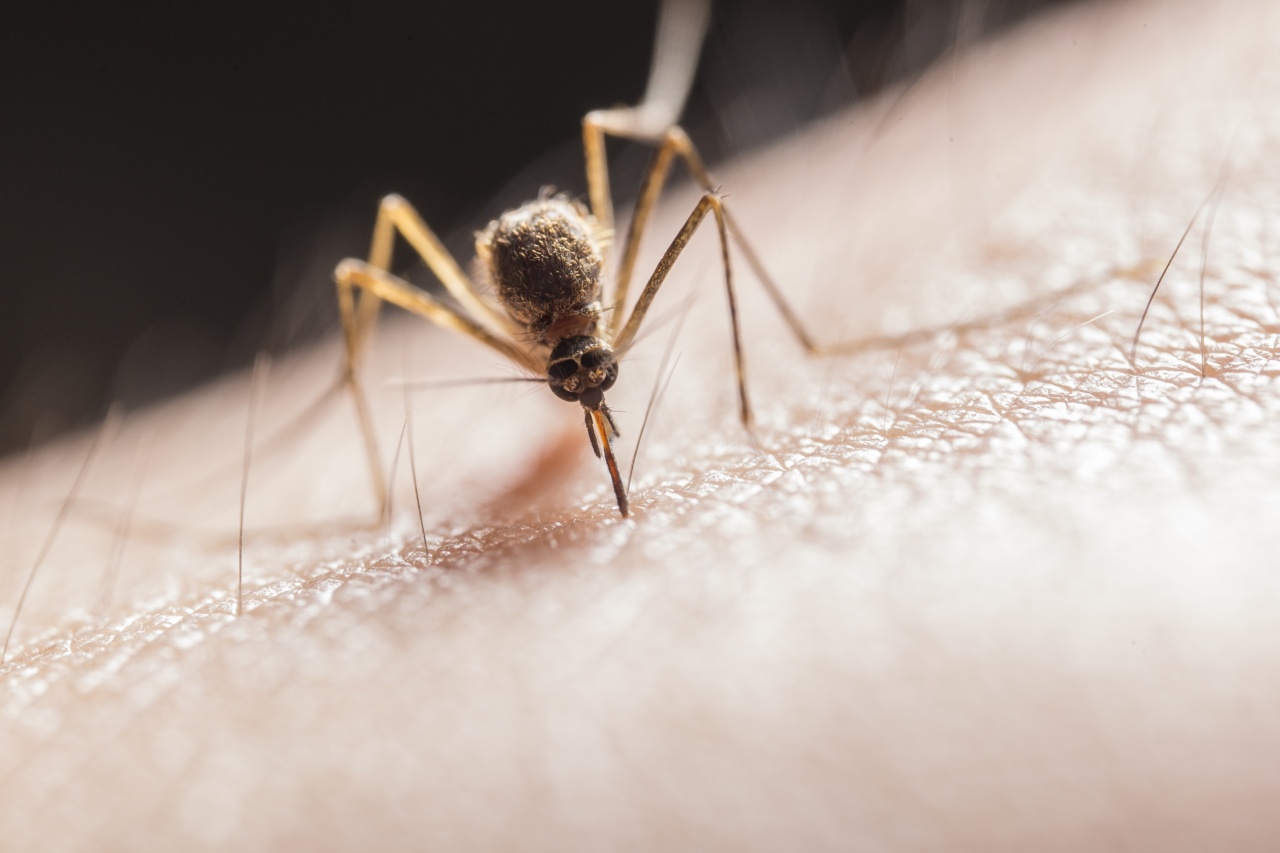When it comes to insect bites, the itchiness and discomfort can be hard to bear. In some cases, the reaction to a bite can be severe, leading to swelling, redness, and even an allergic reaction.
Antihistamines are a commonly used remedy to provide relief from these symptoms. But when exactly should you consider taking antihistamines for insect bites? In this article, we will explore the various scenarios in which antihistamines can be beneficial.
1. Mild Itching and Discomfort
In most cases, insect bites lead to mild itching and discomfort.
If you are experiencing these symptoms without any severe swelling or signs of an allergic reaction, you may opt for non-medicated remedies such as cold compresses, over-the-counter anti-itch creams, or natural remedies like aloe vera or tea tree oil. However, if the itching becomes unbearable and affects your daily activities, antihistamines can provide the much-needed relief.
2. Allergic Reactions
Sometimes, insect bites can trigger allergic reactions in certain individuals. If you notice symptoms such as severe swelling, difficulty breathing, hives, or dizziness after being bitten by an insect, it is crucial to seek immediate medical attention.
In such cases, antihistamines may be prescribed by a healthcare professional as part of the treatment plan to counteract the allergic response.
3. Nighttime Discomfort and Sleep Disturbance
Insect bites tend to be more bothersome during the night, often leading to significant discomfort and sleep disturbance. Scratching the bites can worsen the itchiness, making it difficult to fall asleep or stay asleep throughout the night.
Antihistamines with sedative properties can help alleviate both the itchiness and help induce sleep, promoting a restful night for those struggling with nighttime insect bite discomfort.
4. Multiple Bites
In situations where you have received multiple insect bites, the cumulative effect of these bites can intensify the symptoms. This can result in increased itchiness, redness, and swelling.
Antihistamines, when taken under the guidance of a healthcare professional, can help manage the symptoms of multiple bites and provide relief.
5. Persistent Symptoms
Sometimes, insect bites can lead to persistent symptoms that do not improve with time or basic remedies. If you experience prolonged itchiness, swelling, or discomfort lasting more than a few days, it may be beneficial to consider taking antihistamines.
However, it is important to consult with a healthcare professional for a proper assessment of your symptoms and to ensure that there are no underlying medical conditions causing the prolonged reaction.
6. Pre-existing Allergies
If you have pre-existing allergies, especially to insect bites or stings, it is wise to be prepared with antihistamines.
People with known allergies may be more prone to severe reactions, and having antihistamines readily available can be life-saving in some cases. Talk to your healthcare provider about the appropriate antihistamines and dosage for your specific allergy needs.
7. Prevention of Secondary Infections
When insect bites are scratched, it can break the skin barrier, making it susceptible to infections. Scratching can introduce bacteria from your hands or nails into the wound.
Antihistamines that help alleviate itchiness can indirectly aid in preventing secondary infections by reducing the urge to scratch. However, taking antihistamines alone may not be sufficient. Proper wound care, including cleaning the area and applying an antiseptic, is essential to prevent infection.
8. History of Severe Reactions
If you have a history of severe allergic reactions to insect bites, it may be recommended by your healthcare provider to carry antihistamines with you at all times.
This is especially relevant for individuals who engage in outdoor activities or live in areas where insects are prevalent. Being prepared and having antihistamines readily available can help minimize the risk of life-threatening allergic reactions and provide immediate relief if you are bitten.
9. Sudden Onset of Severe Symptoms
If you are bitten by an insect and experience a sudden onset of severe symptoms, such as difficulty breathing, chest tightness, or swelling of the face and throat, it is crucial to seek emergency medical assistance immediately.
While antihistamines can provide relief in many cases, severe allergic reactions require immediate medical intervention, including the administration of medications such as epinephrine to counteract the life-threatening symptoms.
10. Follow Professional Advice
Ultimately, it is important to consult with a healthcare professional for personalized advice regarding the use of antihistamines for insect bites.
They will be able to assess the severity of your symptoms, take into consideration any underlying medical conditions, and recommend the most appropriate antihistamines and dosage for your specific situation.
Remember, while antihistamines can provide relief from the discomfort of insect bites, it is essential to also address the underlying cause.
Taking preventive measures such as wearing protective clothing, using insect repellents, and avoiding known insect habitats can significantly reduce the risk of being bitten.






























